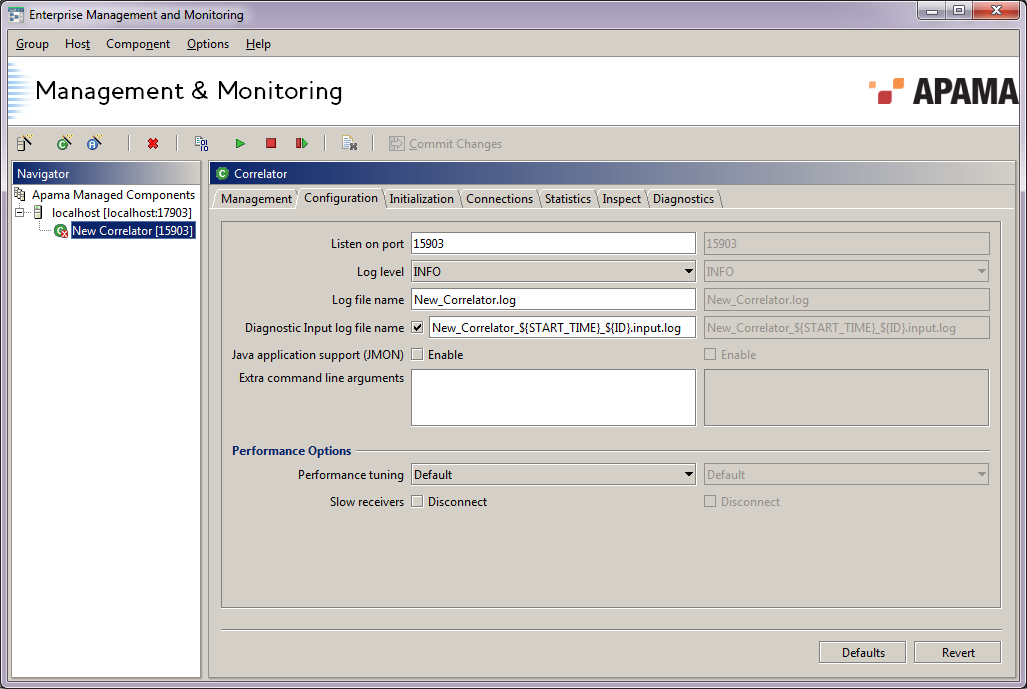Configuration tab
This tab contains a number of parameters that configure how a correlator operates. As all of these are startup parameters, you should adjust them before you start the component. If the component is already running they will only take effect the next time it is started.
The following parameters are available for a correlator:
 Listen on port
Listen on port – Port on which the correlator should listen for monitoring and management requests (default is
15903). The correlator will fail to start if this port is in use by any other component, or for that matter by any other software that is running on the relevant host.
The highest permitted port number for correlators and other components managed through EMM is 65534.
 Log level
Log level – Sets the log level the event correlator should log at. This must be one of
OFF,
CRIT,
FATAL,
ERROR,
WARN,
INFO,
DEBUG, or
TRACE (in increasing order of verbosity). The default level is
INFO.
 Log file name
Log file name - Sets the filename that the event correlator should write log messages to (on the file system of the host the correlator is running on). It is recommended that an absolute path be provided. See
Specifying paths and filenames in the Details Pane for more information about setting filename options correctly.
 Diagnostic Input log file name
Diagnostic Input log file name - Enables and sets the filename for a diagnostic input log. A diagnostic input log collects all messages sent to the correlator and writes then to a file on the file system of the host the correlator is running on. The input log can help Apama technical support diagnose problems with a correlator or an application running on the correlator.
 Java application support (JMON)
Java application support (JMON) – Enables support for JMon applications. If this is not set, any attempt to inject a JMon application either using
engine_inject –j or by adding a
.jar file
Inject initialization action will result in an error. The correlator’s performance is improved when Java application support is disabled.
 Extra command line arguments
Extra command line arguments – This option allows additional unspecified command line arguments to be passed to the correlator. For example these might be special options to pass to the embedded JVM used for JMon applications, or special settings provided to you by Apama Customer Support to address specific issues.
 Performance tuning
Performance tuning – Select
Slow receivers to indicate that the correlator should disconnect any receiver whose output queue becomes full; that is, a receiver that cannot consume events fast enough. Without this option, the event correlator would eventually stop processing events altogether, (and block) until some output events are consumed by the receiver, freeing space on its output queue.
Click Commit Changes when you are finished customizing the new correlator. This applies these outstanding changes for use when the correlator is actually started.
The Default button resets all outstanding parameter values to their defaults, while the Revert button reverts the outstanding parameter values to their current committed values.

